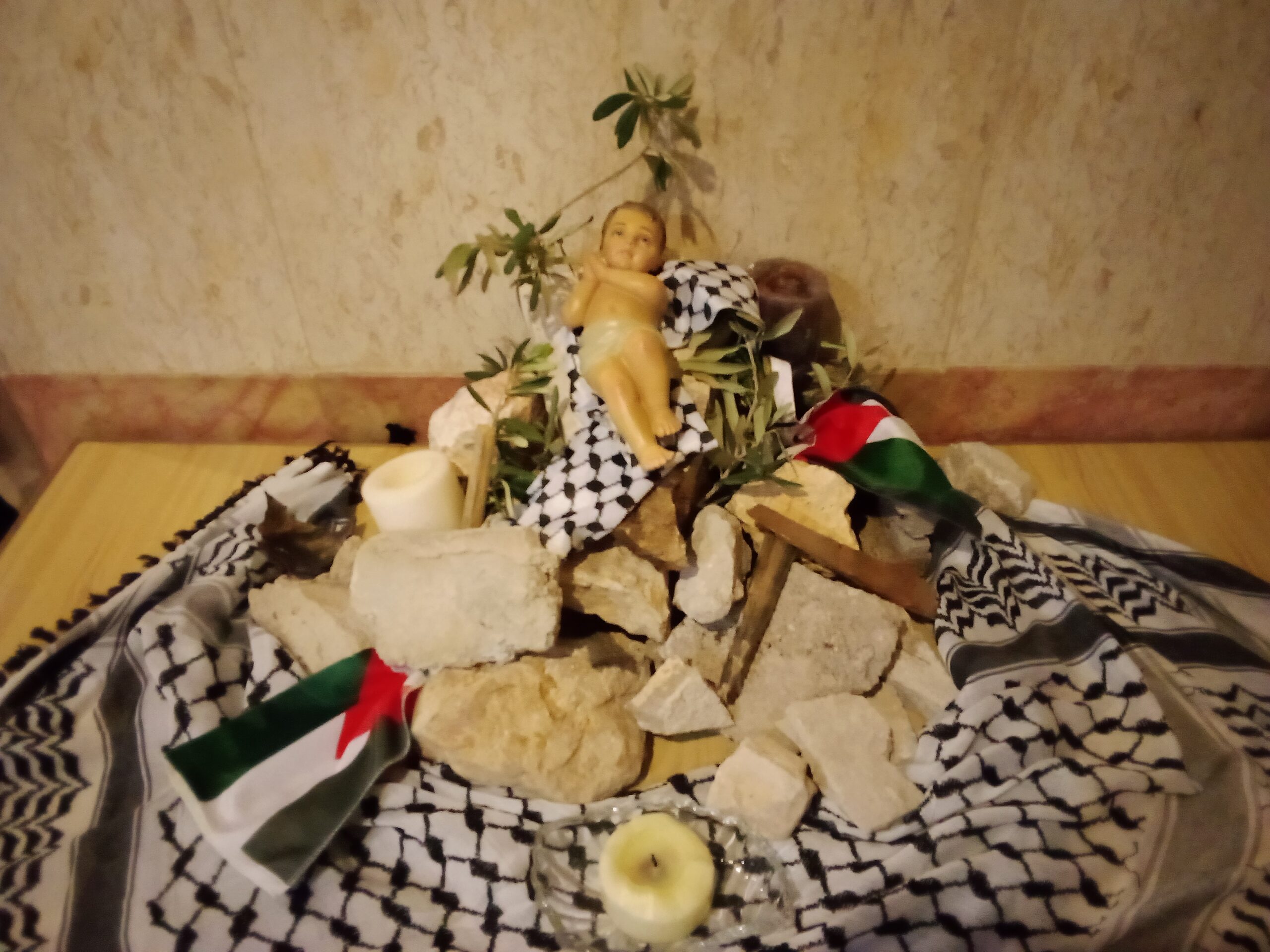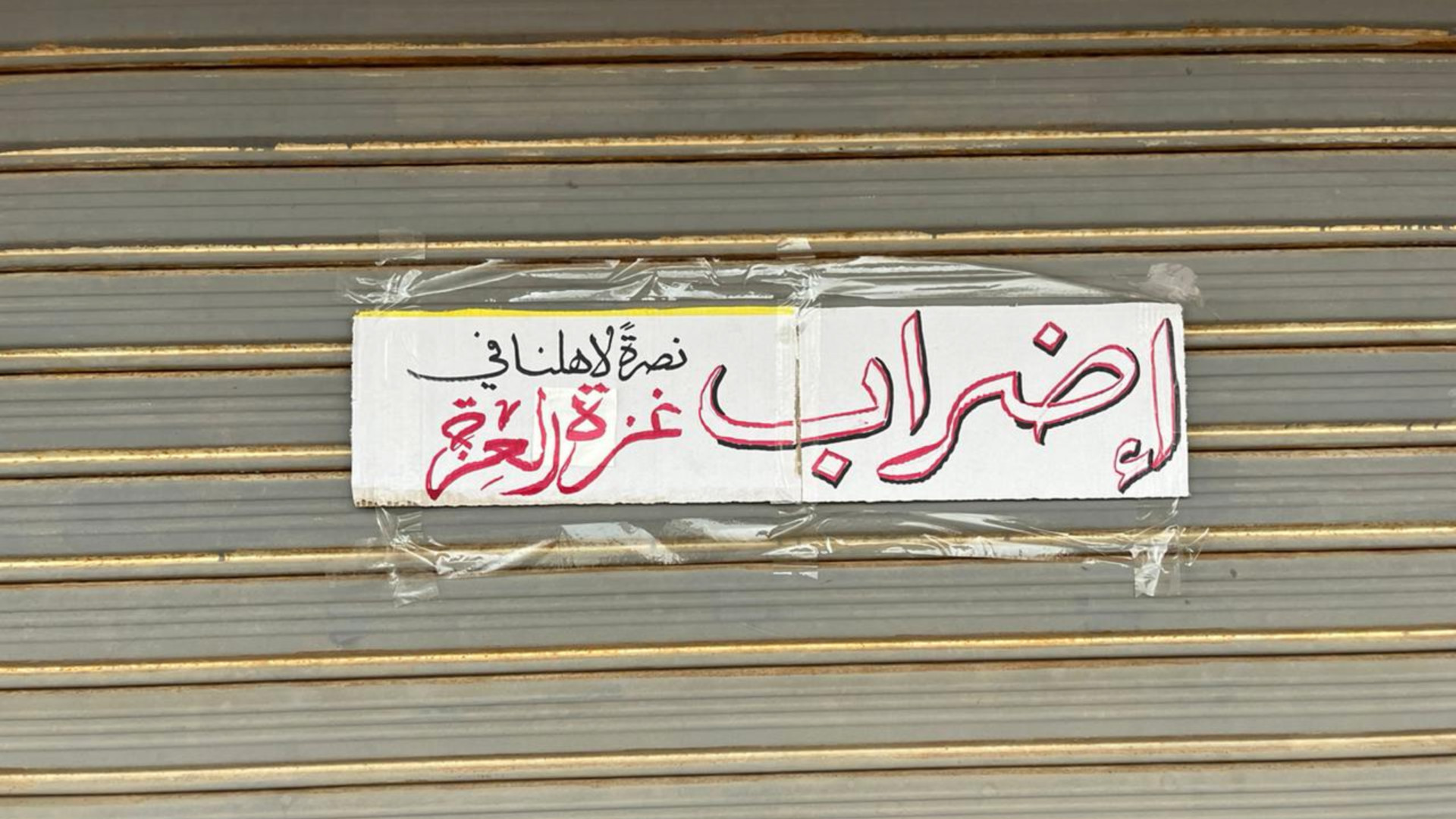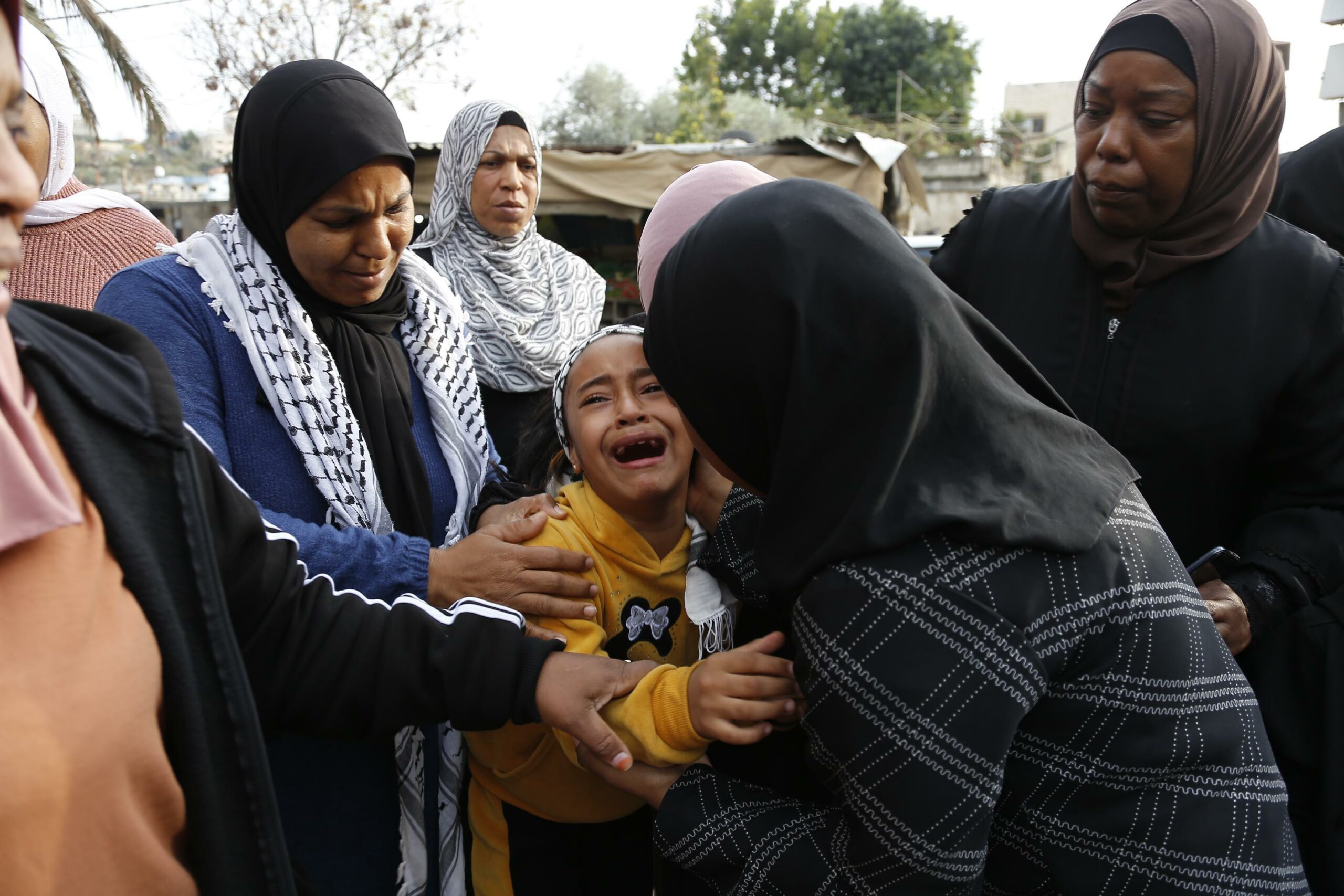-
Candles in the Dark
It is nearing Christmas time in Bethlehem. And there is room at the inn this time. A family from Gaza had to go to a far away hospital for their child’s illness. Then October 7th occurred, and then the genocide.
-
Worldwide Pressure Escalates with Global Strike for Gaza
Striking Palestinians across the occupied West Bank have been joined by millions in countries across the world for the Global Strike for Gaza, which was announced by a coalition of major Palestinian factions. The cadence of the strike declarations accelerated rapidly throughout the day in demand of an immediate ceasefire and an end […]
-
One war in Gaza and another in the West Bank
by Diana Khwaelid 7 December 2023 | International Solidarity Movement | Tulkarem The fire of the war between Hamas and Israel since October 7 has not only burned the civilian population of Gaza. Palestinian civilians in the West Bank have tasted their share of it, too. On December 7, the Israeli occupation forces once […]
Action Alert An Nabi Saleh Apartheid Wall Arrests BDS Bethlehem Bil'in Cast Lead Demonstration Denial of Entry Ethnic Cleansing Farmers Gaza Global Actions Hebron House Demolition International law Israeli Army Jerusalem Live Ammunition Nablus Ni'lin Prisoner Ramallah Rubber-coated steel bullets Settlement Settlers Settler violence Tear-Gas Canister Video



